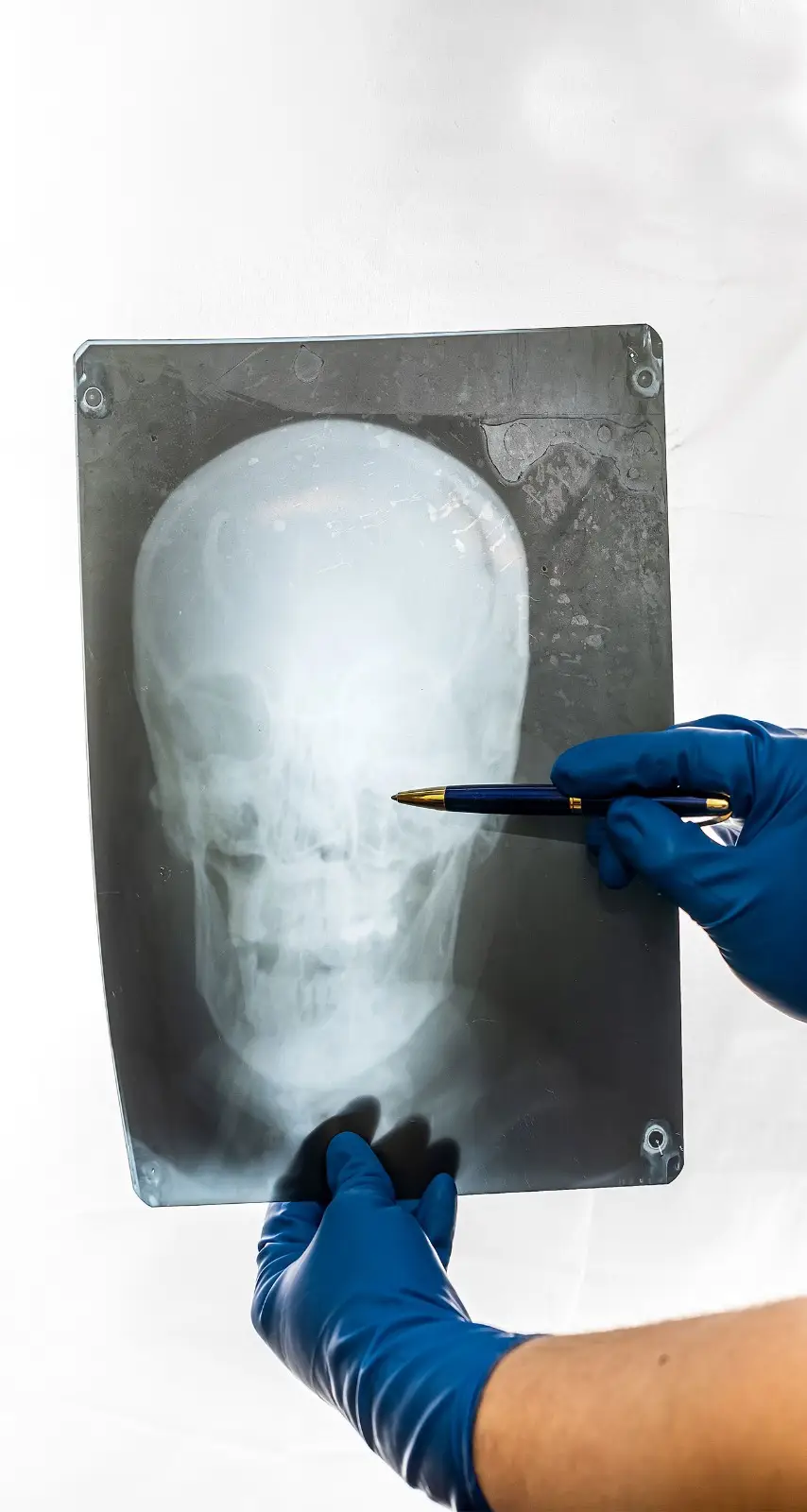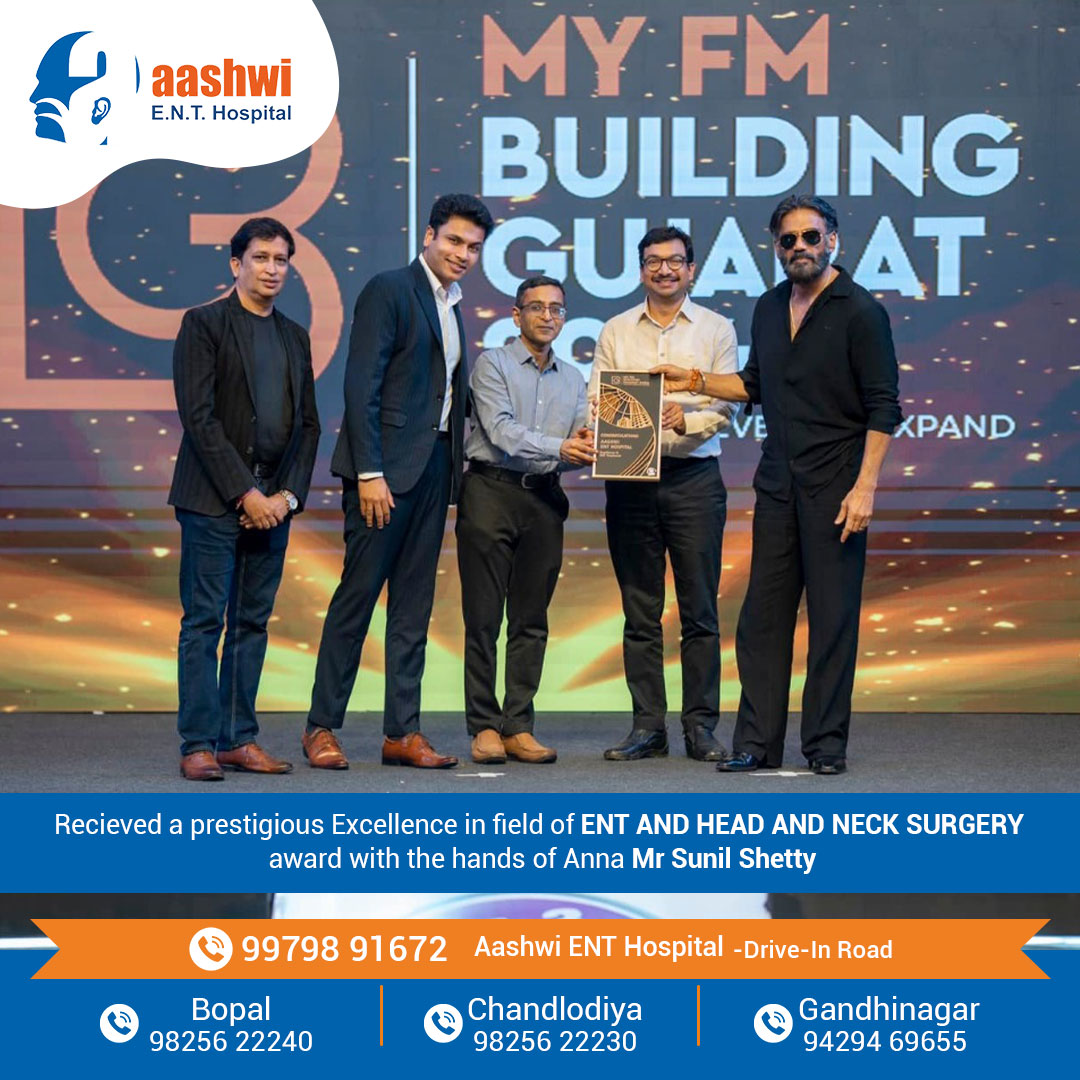Skull Base Surgery Advanced Techniques and Facilities
1. Minimal Invasive and Endoscopic Skull Base Surgery
Aashwi ENT Hospital is well equipped with all the latest high-tech endoscopic systems that will enable minimally invasive skull base surgery. Unlike open surgery, endoscopic skull base surgery requires the use of an endoscope thin, flexible tube with a camera inserted via the nose or through small incisions, thus rendering clear visuals for surgeons for hard-to-reach areas at the skull base. This technique has various benefits, such as less trauma, minimal scarring, and faster recovery with fewer risks of complications, making it highly suitable for patients who demand precision in any region close to vital brain structures.
2. Image-guided navigation and Robotic Assistance
The highest value from image-guided navigation is enhanced accuracy in skull base surgery, which has now been brought about by Aashwi ENT Hospital. Such high-resolution CT and MRIs provide real-time views of images, which then enable point accuracy when trying to operate on tumors or lesions closely located in vessels or nerves. This robotic assistance helps with enhanced accuracy and control when performing various skull base operations, improves outcomes, and minimizes human error.
3. State-of-the-art Diagnostic Imaging Facilities
Aashwi ENT Hospital is well-equipped with all the advanced imaging facilities, with MRI and CT scanners customized for skull base and head imaging. This imaging facility allows for detailed, three-dimensional imaging of the skull base and its related anatomy to help ensure a precise diagnosis, mapping, and surgical planning of complex cases. It is an absolute pre-operative requirement to understand the extent of any tumor or lesion, so doctors can tailor treatment for each patient.
4. Skull Base Surgical Team:
The hospital has an experienced group of skull base surgeons and ENT specialists dealing with acoustic neuroma and meningiomas or pituitary tumors. They are particularly specialized in neurosurgery, ENT, and oncology, which would ensure focused care on all those cases related to skull base anatomy. Such a diverse approach would combine different skills from various disciplines, thereby optimizing surgical success and patient safety.


Comprehensive care from pre-operative evaluation to post-operative recovery
1. Detailed Pre-Operative Evaluation and Planning
Each patient admitted to Aashwi ENT Hospital is subjected to a complete pre-operative evaluation to determine which surgical approach would be optimal and prepare for any potential complication. This includes detailed histories, imaging, lab investigations, and consultations with various specialists; for example, neurosurgery, ENT, or oncology. The hospital care team will also make time to talk to them about the surgery itself, potential risks, as well as what recovery should be like. This step-by-step process prepares patients and families with confidence going into the procedure.
2. Patient-Centred Surgical and Anesthetic Care
Skull base surgeries are inherently complex and necessitate a critical management of anesthesia given the proximity of critical structures of the brain to the surgical site. Aashwi ENT Hospital has always had an expert team dealing with anesthesia during skull base surgeries, with all attention towards safety and comfort at the time of surgery for the patient. The overall time that the patient may be in anesthesia and under surgery may be reduced because the methods used by the surgical team are minimally invasive.
3. Intensive Post-Operative Care and Monitoring
Reconstruction after surgery involves close monitoring to avoid complications and early treatment of patients who undergo skull base surgery. Aashwi ENT Hospital has an ICU with well-trained staff in neurosurgery and ENT post-operative care. Continuous monitoring of vital signs is assessed for neurological status, and pain management protocols. The team focuses on reducing inflammation, trying to manage CSF leaks, and making the early stages of recovery smooth.
4. Rehabilitation and Supportive Therapy
Skull base surgery usually involves physiotherapy, speech therapy, and emotional support in rehabilitation. Aashwi ENT Hospital rehabilitation services offer several services designed to help patient regain their strength by improving their balance and rectifying problems associated with speech or swallowing after surgery. The physical and occupational therapists dedicate themselves to preparing a comprehensive rehabilitation program for speedy and better recovery by addressing definite areas affected by the surgery.
5. More Extended Follow-Up and Continuing Care
Aashwi ENT Hospital ensures follow-up services strictly because recovery from skull base surgery takes time and is more than just a hospital stay. Organized scheduling for regular follow-ups, imaging tests, and consultations to search for and manage any recurrence as well as long-term side effects is provided to the patients. Care coordinators at the hospital work with each patient to ensure scheduled follow-ups, remind them, and provide the necessary help in getting in touch with facilities and services.
6. Support Services to the Patient and Families
Aashwi ENT Hospital believes that not only the patient but the family too feels emotional and physical stress following skull base surgery. A complete range of support services is, therefore, made available, which includes counseling of the patient psychologically and education to the patient, guiding the family on how to take proper care of the patient after going home. This will ensure the comfort and motivation of the patient during recovery time under the care of a well-managed team to control the patient’s medical as well as emotional needs.
Skull-based surgery is a specialized, delicate area requiring advanced technology, experienced surgeons, and a comprehensive support system for pre- and post-operative care. Aashwi ENT Hospital, Ahmedabad, has emerged as a leading center for ENT and skull base surgeries, with advanced techniques and facilities for successful outcomes and enhanced patient recovery.


